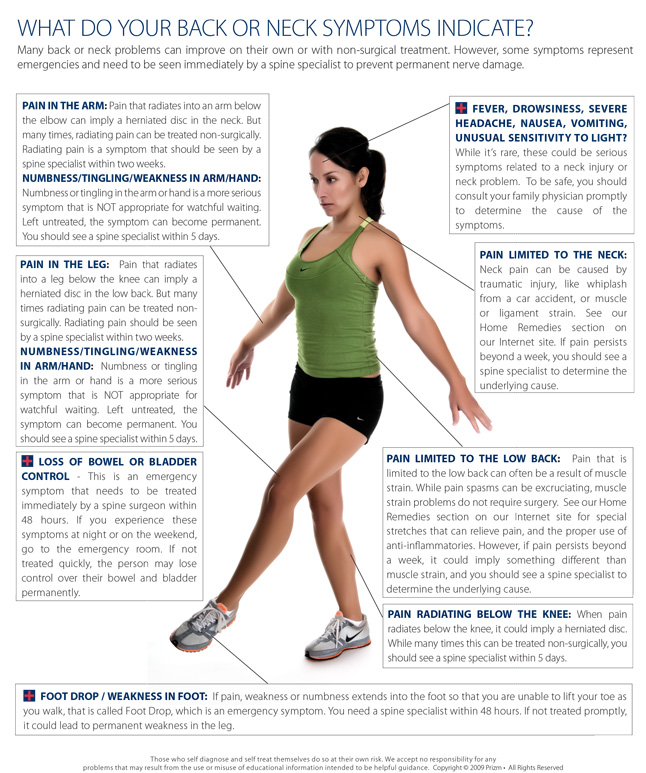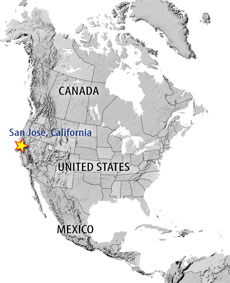The danger of delayed MRI spine diagnostics in Canada
A risk of permanent and lifelong paralysis for patients
Unlike other medical issues where pain is a good indicator of an emergency or urgent need for care, back and neck problems are different in that pain is not necessarily a good indicator of an emergency symptom.
For example, a back spasm can be excruciating and knock a person down to their knees and send them off to an emergency room. But a back spasm does not require surgery. A spasm is called by strained muscles and ligaments which can be treated with over-the-counter anti-inflammatory pills, a muscle relaxer prescription and custom stretches.
Instead, for back and neck problems, the emergency symptoms are weakness or numbness in a hand or foot, or loss of bowel/bladder control — something many people don’t associate with a herniated disc in the back or neck or any kind of spine injury. This can include “foot-drop” where a person is unable to raise the front of their foot when walking.
If this numbness or weakness symptom isn’t treated within 24 or 48 hours, the pressure of the herniated disc on the nerve root can cause permanent paralysis. This makes the numbness/weakness, or incontinence, or foot-drop, permanent and lifelong. It can’t be repaired later with any type of surgery.

Copyright © 2018 Prizm Development Inc.
Click here for a downloadable PDF.
Radicular Pain — Pain radiating down into an arm or leg
Another somewhat urgent symptom of a herniated disc in the back or neck is called “radicular pain”. Radicular pain is when the person feels searing pain radiating down into their leg from a herniated disc in the low back, or radiating pain into an arm from a herniated disc in the neck.
While watchful waiting, or spinal injections, can be used for radicular pain, if the radiating pain symptom is not relieved over three months or so, research studies show a subsequent surgery may not be effective in relieving the radiating pain.
In this sense, extended pressure on the nerve root causes a permanent crimp in the nerve, causing it to remain in a “stuck” position and constantly transmitting a pain signal to the brain, or causing numbness and paralysis to become permanent.
The best analogy is to picture a car sitting on a garden hose on the driveway. If the car sits there for a month before moving, it can leave a permanent crimp in the hose even after the car is moved. The nerve responds the same way to an impingement and unrelenting pressure from a herniated disc. The longer the nerve is compressed by a herniated disc, the less likely it can return to normal function.
Being a “patient” patient can result in lifelong paralysis and disability
So while a Canadian may choose to endure the pain and numbness associated with waiting a month to see a family physician, and then another year to see a spine surgeon for an MRI diagnostic scan to reveal a herniated disc, the delay of the healthcare system can greatly impact the person’s life — permanently. Consequently, when a person has a herniated disc in the low back or neck, being a “patient” patient can result in lifelong paralysis and disability.
This is why it’s important to become a very educated patient to understand the choices one is making by sitting in the queue rather than looking for a prompt diagnostic assessment of one’s problem.
Access to MRI in Canada
Diagnostics in Canada can also create an access issue. An X-ray machine is pretty common and not expensive. But X-rays only reveal bones, not soft tissues like a spinal disc. MRI is the necessary diagnostic test for the surgeon to visualize the soft tissues in the spine, including a herniated disc. And a single MRI machine can cost $2 million dollars.
Consequently in Canada, there are only a few of these MRI machines in a city like Calgary or Edmonton, which creates yet another bottleneck and waiting queue.
The solution?
Going to a spine center in the United States can provide a Canadian with back or neck pain the needed MRI diagnostic scan so they can learn early on if they have a surgical issue or not. If not, they can immediately return home and progress to non-surgical treatment alternatives back in their city in Canada. The patient has clarity that they can proceed with therapy and a return to activity.
Not surprisingly, thousands of Canadians from Vancouver, Calgary, Edmonton, Toronto, Montreal and Quebec City routinely travel to spine centers in the U.S. to take responsibility for their own healthcare rather than depend on the slow gears of the government-driven healthcare system.
Here at San Jose Neurospine, as a result of our international reputation, we treat patients from all over the world. Our practice is conveniently located close to both San Francisco International airport and  San Jose International airport. The San Francisco bay area has some of the nation’s finest hotels. If required our staff can help arrange hotel accommodation as well as airport pickup. We also provide translation services to patients who speak little to no English.
San Jose International airport. The San Francisco bay area has some of the nation’s finest hotels. If required our staff can help arrange hotel accommodation as well as airport pickup. We also provide translation services to patients who speak little to no English.
Our “Virtual Consultation” program enables us to assess your clinical problem weeks before your visit. All you have to do is send in our imaging (CT, MRI and X-Ray) studies and reports as well as provide a brief medical history. We will then carefully review this information and contact you with our recommendations. For many of our out of town patients, the preoperative clearance evaluation is performed by a primary care physician in their home city. Our clinic will provide you with the details of all the required information and the necessary preoperative tests.
Patient Testimonial – Minimally Invasive Spine Surgery
Colleen first noticed something was wrong when she experienced tingling and numbness in her leg while on vacation in Vancouver and continuously had to stop and rest, hindering her trip. As time went on, her leg became more painful, so painful that she had to carry a folding stool with her at all times so she could sit down and rest her leg. An MRI determined it was her lower back that was causing her leg pain.
After injections and pain creams were unsuccessful, Colleen visited San Jose Neurospine where Dr. Onibokun performed a Minimally Invasive procedure to alleviate her back pain. Colleen is now back to a pain free life.
Watch Colleen's emotional story...
